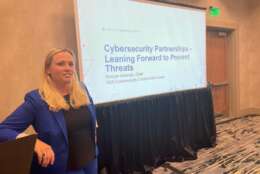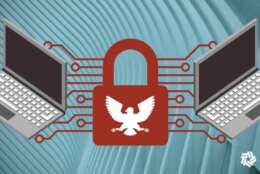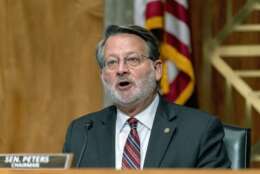Cybersecurity
-
The U.S. military establishment is so focused on future technology that it risks national security right now. That's the thesis of my next guest. She argues an obsession with future, and futuristic, technology can lead planners off course.
February 17, 2022 -
DHS's privacy chief wants to make privacy less of an afterthought by designing systems with technologies to protect the confidentiality and integrity of information in the first place.
February 17, 2022 -
In today's Federal Newscast, federal agencies say over the past two years, Russian state-sponsored hackers have systematically infiltrated the unclassified networks of cleared defense contractors.
February 17, 2022 -
In today's Federal Newscast, Immigration and Customs Enforcement says it requires the expertise and analysis of industry-leading zero Trust analysts, consultants and practitioners to meet the new White House requirements.
February 16, 2022 -
The agency is continuing to work on ways to boost the security of the electric grid after kicking off a largescale initiative last year.
February 16, 2022 -
One of the great open secrets of the cybersecurity domain is how much mischief is done by Russia and its government-sponsored hackers. Countering Russian cyber activity takes a lot of effort on the part of the U.S. government and U.S. companies.
February 15, 2022 -
In today's Federal Newscast, House Republicans are pressing Energy Secretary Jennifer Granholm on how she is abiding by the STOCK Act.
February 15, 2022 -
The recent increase in high-profile cyberattacks has shown that the federal government can no longer depend on the traditional perimeter-based defenses to defend their networks. Agencies are beginning to realize that they must adapt and adjust their strategies as new malicious tactics and technologies emerge.
February 14, 2022 -
For more than a year, the National Security Agency has been sharing cybersecurity threat information with defense industrial base companies. The idea is to correlate NSA signal intelligence with malicious activity the companies see on their networks.
February 14, 2022 -
Tim Odom, director of Business Technology Solutions Development at Vidoori, joins host John Gilroy on this week's Federal Tech Talk, to explain how high-performance testing can help federal leaders complete major tasks on time and under budget.
February 14, 2022 -
A new DoD CIO memo gives the Pentagon's formal blessing to security approvals that are based on continuous monitoring, and aims to create a more common lexicon for continuous ATOs.
February 14, 2022 -
But agencies, amid a surge in public demand to use government services digitally, as well as a rise in improper payments from COVID-19 stimulus programs, face growing pressure to make customer services easier to access, but also more secure.
February 14, 2022 -
The tiered approach is a feature of new contracts the NRO awarded last month to five synthetic aperture radar firms.
February 11, 2022 -
A federal cybersecurity agency is reviewing a report that alleges security vulnerabilities in voting machines used by Georgia and other states
February 11, 2022 -
In today's Federal Newscast, the Homeland Security and Governmental Affairs Committee is set to consider a bill combining incident reporting requirements and updated federal cyber standards.
February 11, 2022















